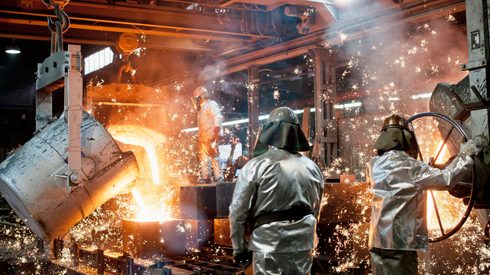The company will stop all four of its blast furnaces (BF) and install a direct-reduction plant at the Duisburg production site.
“We will install the first [direct-reduced iron] module with 1.2 million-tonne-per-year capacity by 2025,” a source from the company told Fastmarkets.
“After the module is started, we will stop one of our four BFs. The second will be stopped by 2030 [when the second DRI module is installed],” the source said.
The closure of the first two BFs will help reduce CO2 emissions at the site by 30% until 2030. The remaining two furnaces will be in operation until 2045, when the third and fourth DRI modules are installed.
“We are considering the possibility of starting our own hydrogen making and building an electrolysis plant; it will partially cover our needs. We are also planning to purchase it in Germany and overseas,” the source said.
The installation of hydrogen-based DRI modules is part of Thyssenkrupp’s H2Stahl project.
The project also includes using hydrogen in existing blast furnaces and supplying industrial hydrogen for steelmaking via a new pipeline.
Currently, the project is able to make around 11 million tpy of flat steel products. The company is planning to maintain its capacity at the same level after all BFs are stopped by 2045.




